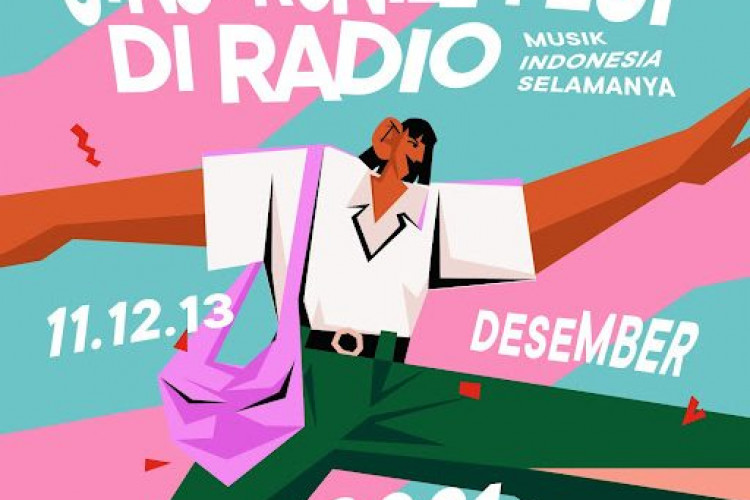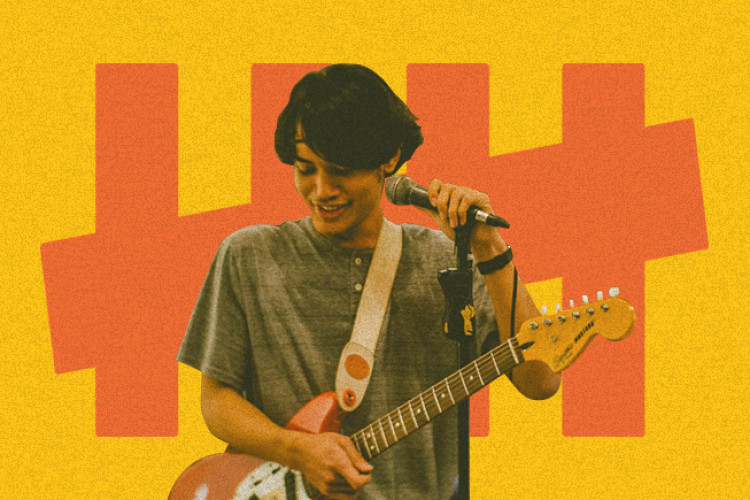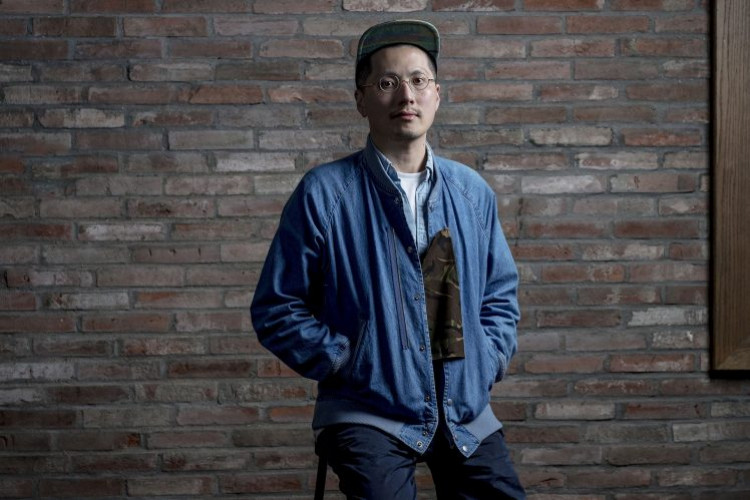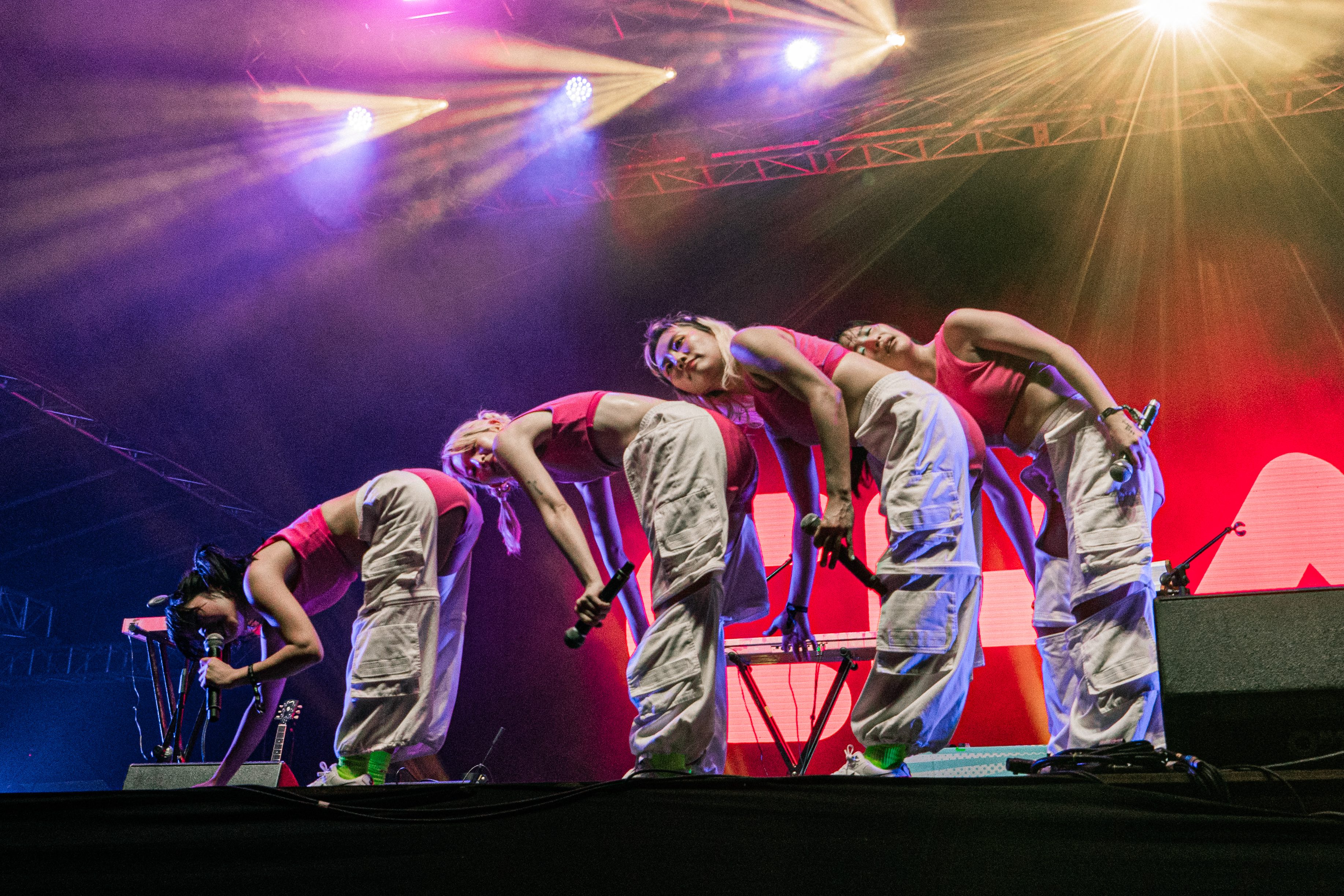
Reinventing Beauty Standards through the Idea of Neo-Kawaii with CHAI
During Joyland Bali 2023, we conversed with CHAI, the Japanese all-girls band that broke the boundaries of beauty standards with their neo-kawaii idea, and whom performed unrestricted of genres.
Words by Whiteboard Journal
Words: Garrin Faturrahman
Photo: Whiteboard Journal/Nugie Rian
Not bound by genres nor societal standards, CHAI is the true embodiment of being free in the pursuit of expression, and the embracing of one’s self. On Joyland Bali 2023, CHAI stormed throughout the venue with their music and stage performance where each number was nothing short of thrilling: From the twists and turns musically, the sudden idol-esque performance with them dancing to the beat, and the lead vocalist running around the stage in circles.
Our conversations with the four of them took place in a tent, still under the sounds of another performer playing. Also, this interview was conducted with the help of a translator that translates everything said by CHAI members into Indonesian.
I am honestly curious about how there are a number of all-girls bands in Japan, and with that comes a very wide spectrum of genres too! Like tricot, AKAIKO-EN, or Otoboke Beaver—some are my personal favorites. How does the Japanese music scene provide a platform or a safe space for everyone to express themselves in music?
Translator: As they are all born and raised in Japan, and keeping in mind that Japan is colloquially known for the use of “kawaii” where it is used liberally by the Japanese as a compliment for those that are under the criterion to be called “kawaii”—for having big eyes, for instance.
No need to feel nervous or hesitant—if there’s anything you want to say, just say it, and this is the message that they want to put forward through music.
Translator: Because of that, CHAI comes forward with neo-kawaii, with the message that is: sometimes, people that are not called kawaii may feel left out, which reinforces the idea that only those people that get to be on TV or the magazine. This is what CHAI is fighting against.
On that topic too, how is the representation of women in Japanese music?
Translator: CHAI is one of the more unrestrained bands in Japan. For instance, some musicians are not able to send a certain message through their songs due to factors that restrain their freedom. With that said, this is where CHAI comes in: the concept embedded in them is that girls too have power, and girls too have things to say! No need to feel nervous or hesitant—if there’s anything you want to say, just say it, and this is the message that they want to put forward through music.
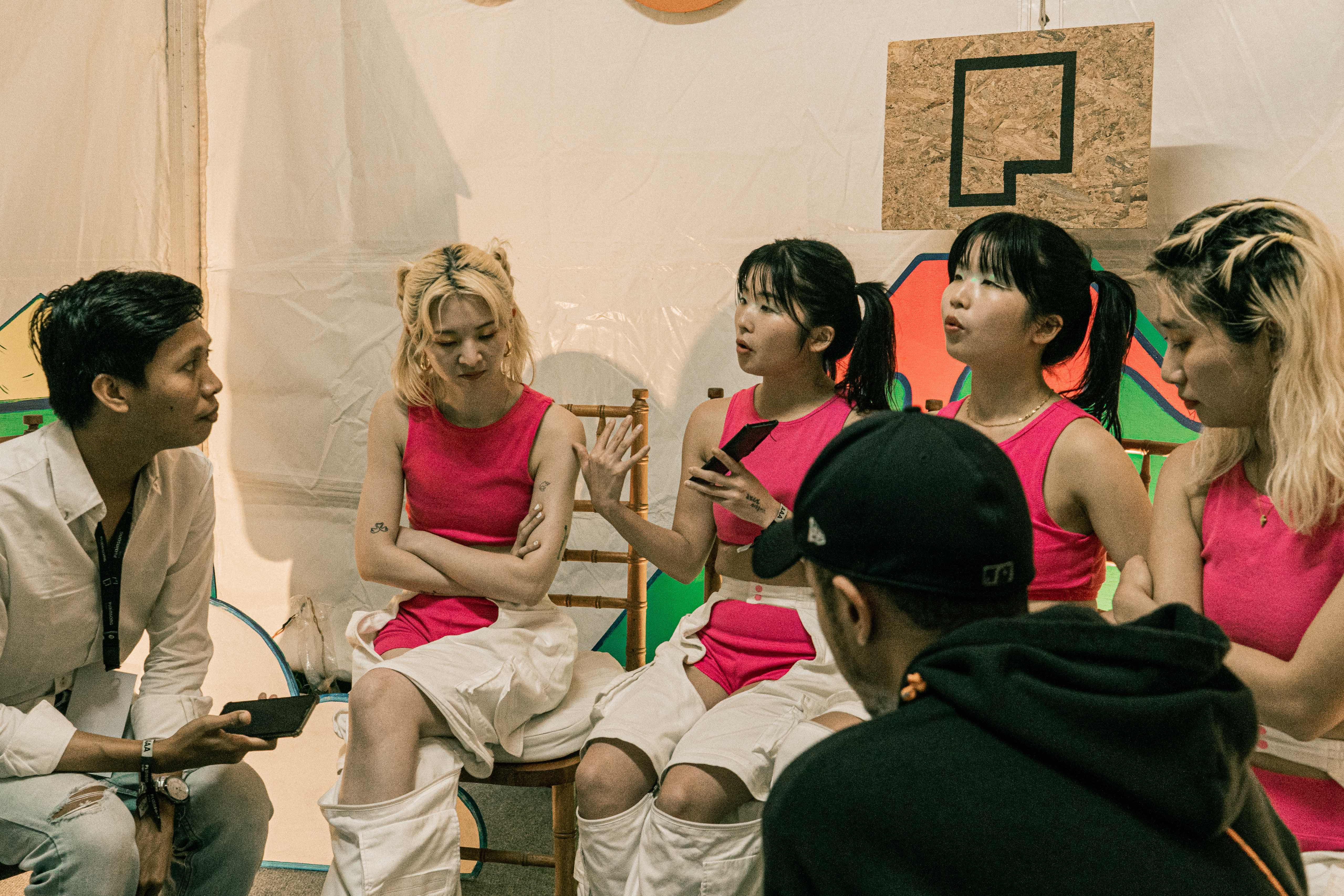
Also, I’ve heard the three of you were in the same high school band, yes? That reminds me of anime like K-ON! and Bocchi The Rock, where high school era music-making is a prominent theme. I want to know: how much emphasis do the Japanese put on music in their lives since their early years?
Translator: Ever since they were little, the music they hear from the radio or TV are all J-pop. And it is true that they have liked music since their younger years, and in the search for music, they listen to J-pop. Because of that, they now try to diverge and explore other genres and elements from what they used to listen to, and that is what they brought to CHAI.
Your song, “N.E.O.”, and from what I’ve heard from some interviews of yours have put forward the message of redefining “kawaii”, or what you guys call as “the highest compliment in Japan”. With that said, how do you see the progress of East Asian beauty standards?
Translator: For them, each country has their own beauty standards, but the thing is, what they want to say is that each in everyone has their own kawaii-ness that is special to them. Be it left unchanged, or even altered along the way, these will not be a problem because you will always be kawaii—ever since you were born, you already have a kawaii side to you! That’s what they want to voice out.
I’ve read that you guys put great attention towards food, and even used them as an analogy to human feelings, like “KARAAGE” for youth love, and “チョコチップかもね/Maybe Chocolate Chip)” for the embracing of beauty marks. Why did you use food as a vehicle to get the message across?
Translator: Food is the most important component in life—everyone needs to eat! So, with food being held in high regard, it will be easy for them to convey the message of self-love—by eating whatever food that you want, that is. For instance, they all like gyoza, and for them to express self-love, they eat gyoza.
Be it left unchanged, or even altered along the way, these will not be a problem because you will always be kawaii—ever since you were born, you already have a kawaii side to you! That’s what they want to voice out.
On that topic, what food did you enjoy best in Bali?
CHAI: Nasi goreng!
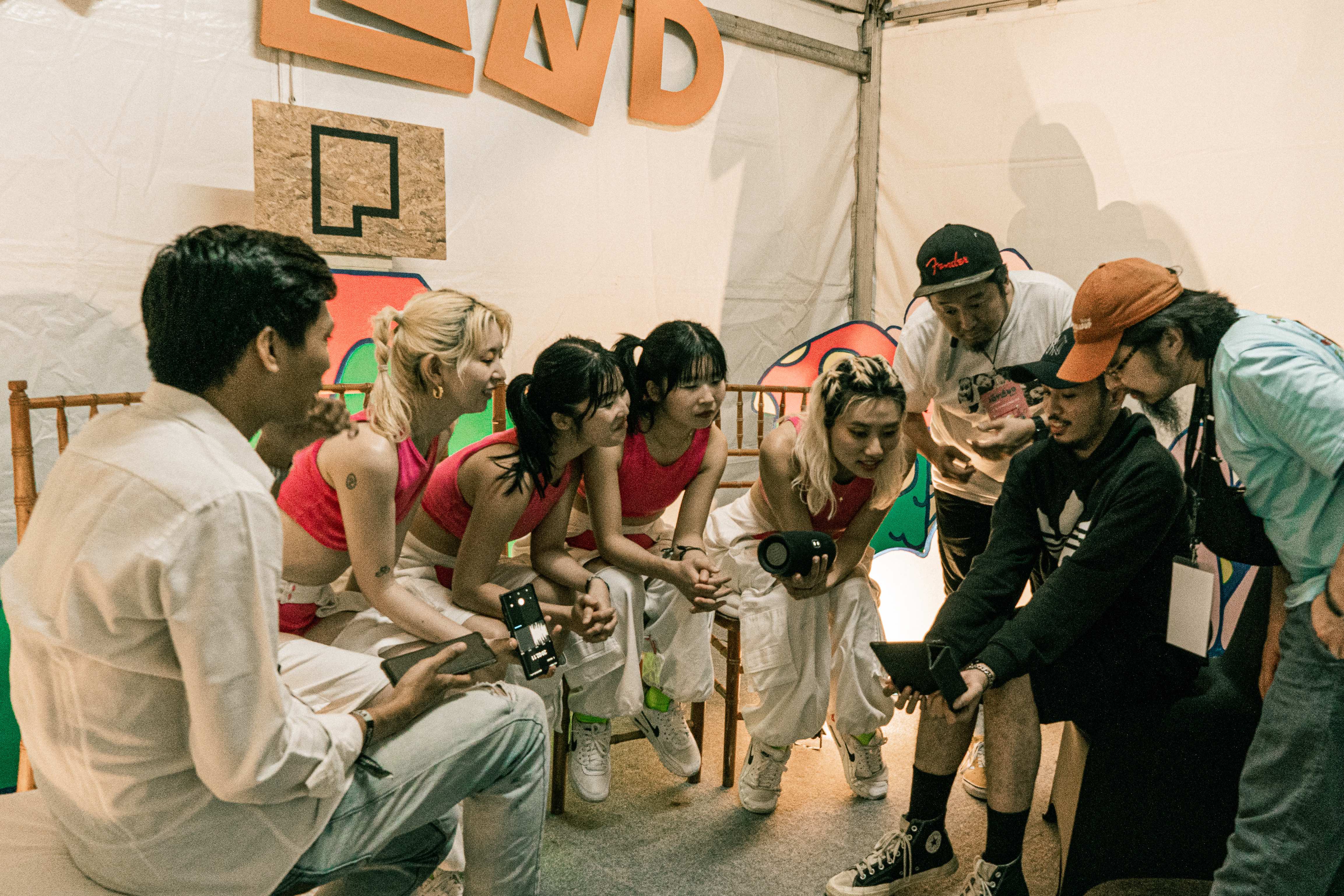
Speaking of Indonesia, we recommended them some local musicians for them to listen:
CHAI: So good! Kawaii!
Translator: She said, what she felt after listening to this song brings to mind the blue sky and the pretty ocean of Indonesia.
CHAI: Is this popular here?
Quite.
CHAI: It’s cool! So good.
Any messages you would like to say to local musicians here?
Translator: Please be free and creative in creating something, and also express yourselves freely.
